In the first part of our analysis of the “Crime in India – 2023” report, we looked at the state of crime in general in large Indian cities. The focus was on how the criminal justice system was churning and whether it was able to address the demands of our cities. We found that most cities were struggling to manage the rapidly growing number of cases.
In this second part we look at specific types of crimes, the cities that are most affected by them, and whether they are able to deal with them effectively. For the sake of brevity, we look at four main types of crimes – crimes against women, against children, economic offences and cyber crimes.
Crimes against women
Similar to last year, Delhi leads in the number of cases registered for crimes against women. Mumbai and Bengaluru follow, but at a distance.
Except for Chennai, the rest of the cities all registered cases in four digits indicating an alarming trend that requires urgent action.
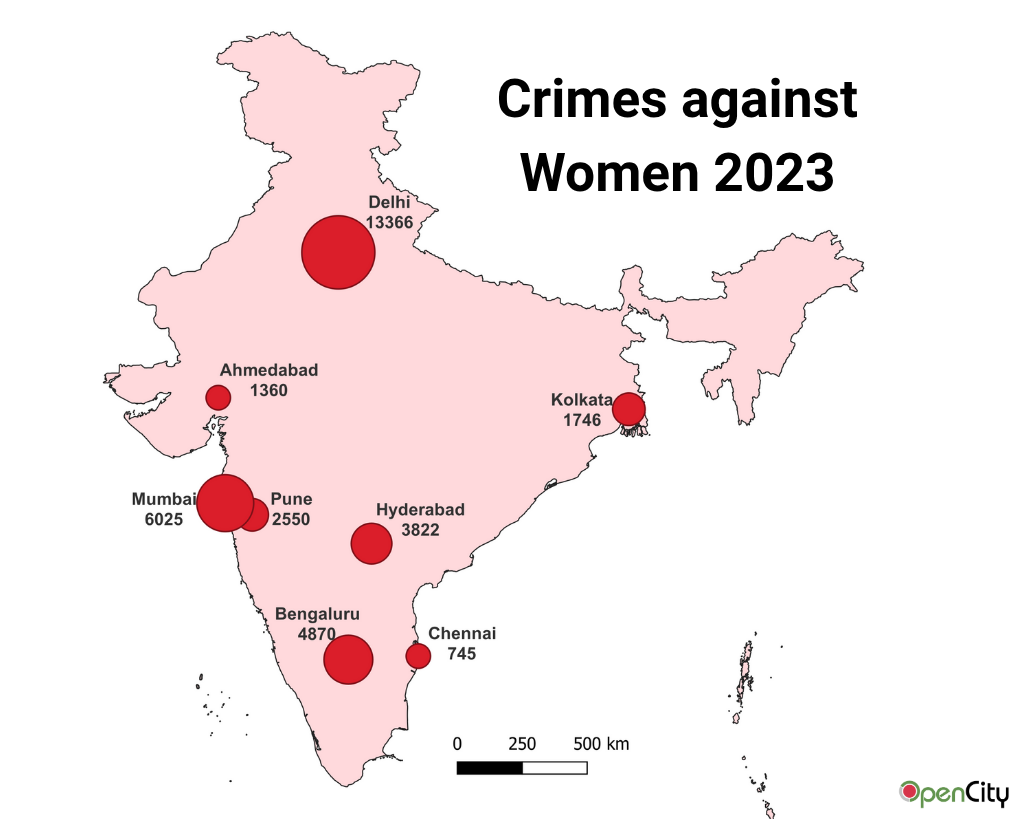
In the top three cities, Delhi, Mumbai and Bengaluru, the number of people arrested was higher than the number of cases and chargesheets have been filed for most of them. This suggests that the police are taking crimes against women seriously and are acting on them with urgency.
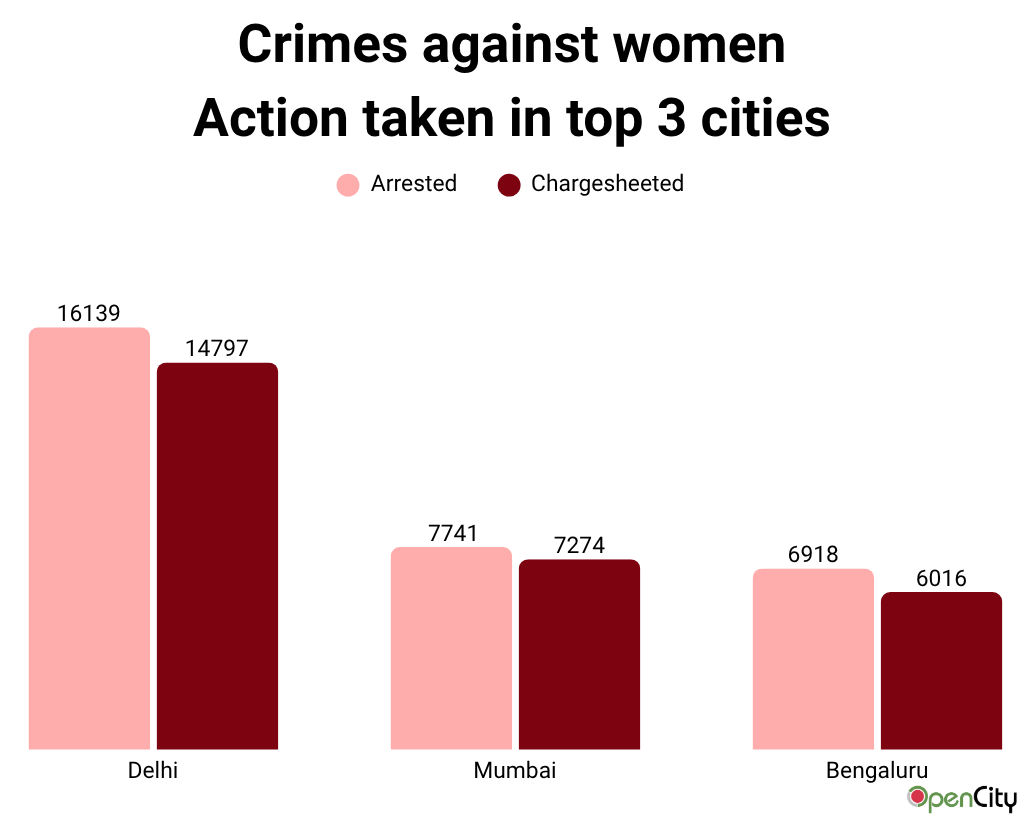
The prosecution of crimes against women in trials in Delhi, however, leaves much to be desired. Only 21% of those who went to trial for crimes against women were convicted in 2023. Alarmingly, close to 40% of the cases were disposed before reaching trial as the courts did not find the evidence or investigation worth proceeding with a trial.
It suggests that either the prosecution is unable to gather the required evidence during the investigation, or the wrong people are being arrested to show action being taken. Both the scenarios are alarming.
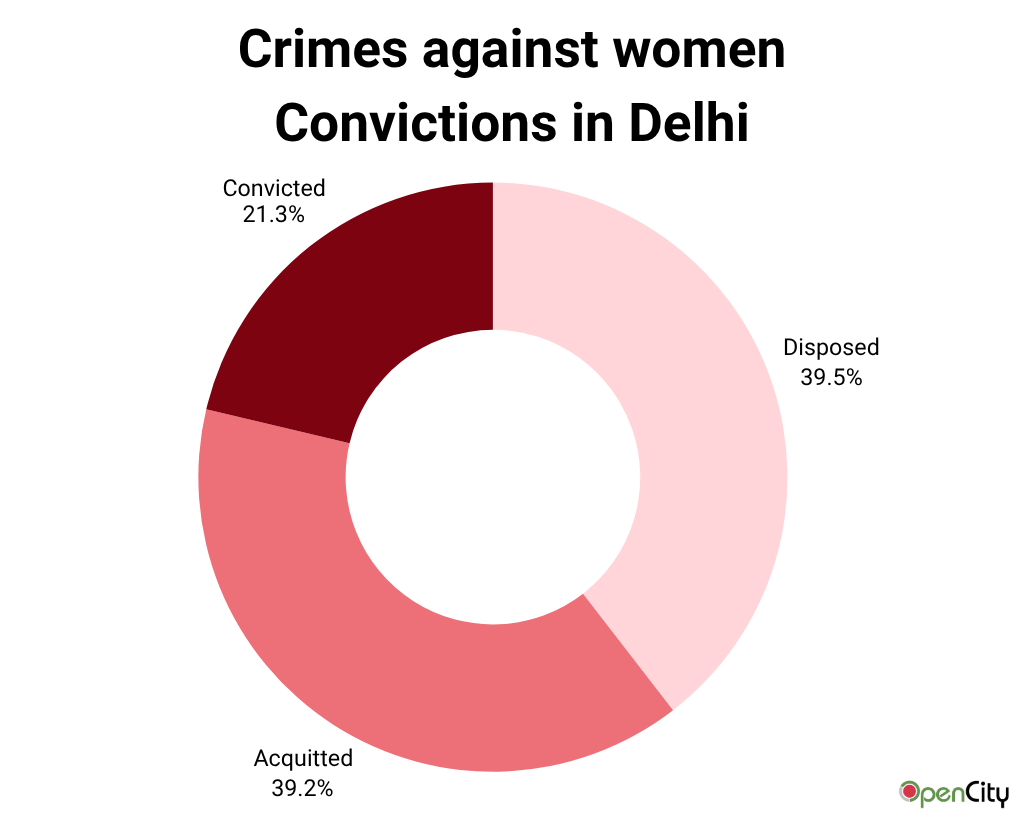
Note that this data is for trials completed in 2023, and not necessarily the same cases that were registered in 2023. The same applies to the conviction rates for the rest of this article.
Crimes against children
Similar to crimes against women, Delhi, Bengaluru and Mumbai lead the charts in crimes against children too. Once again, Delhi leads by a large distance compared to the next highest.
Kolkata registered the fewest cases, under 300 during 2023. Extremely low numbers when compared to other cities could suggest that fewer people are coming forward to register cases, or are being dissuaded from registering cases.
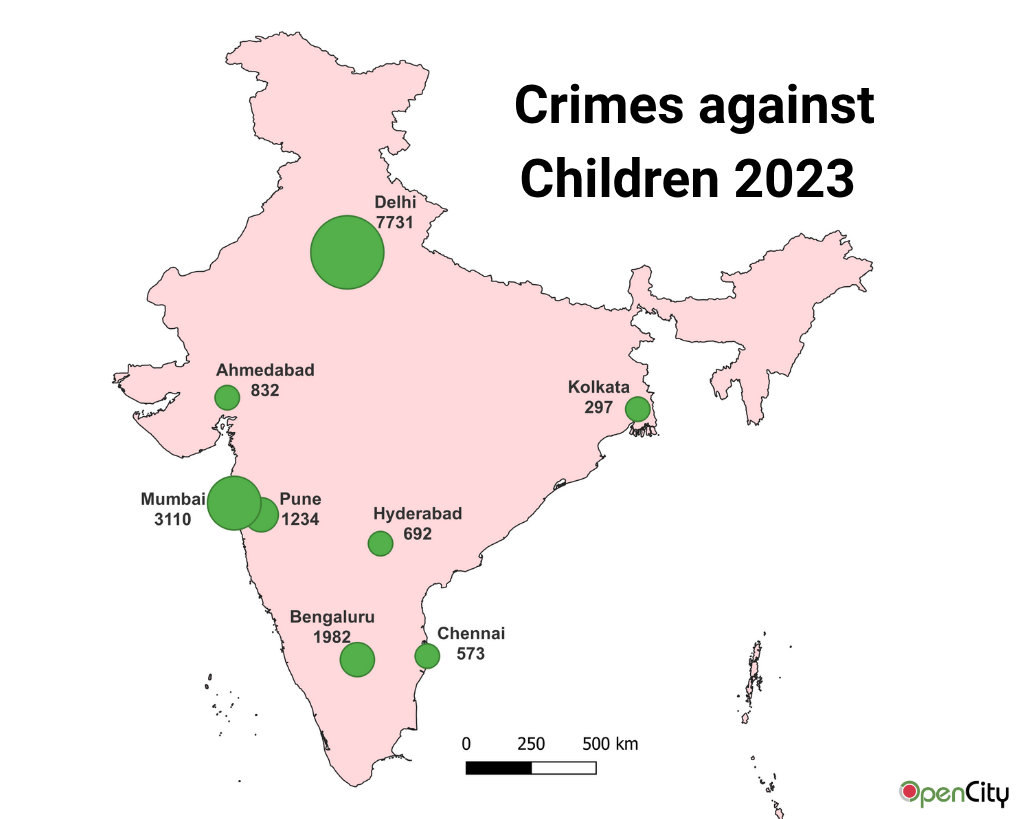
In terms of arrests and chargesheets, the numbers fall well behind the number of cases in both Delhi and Bengaluru. This is especially concerning given the nature of the crimes and the corresponding numbers for crimes against women.
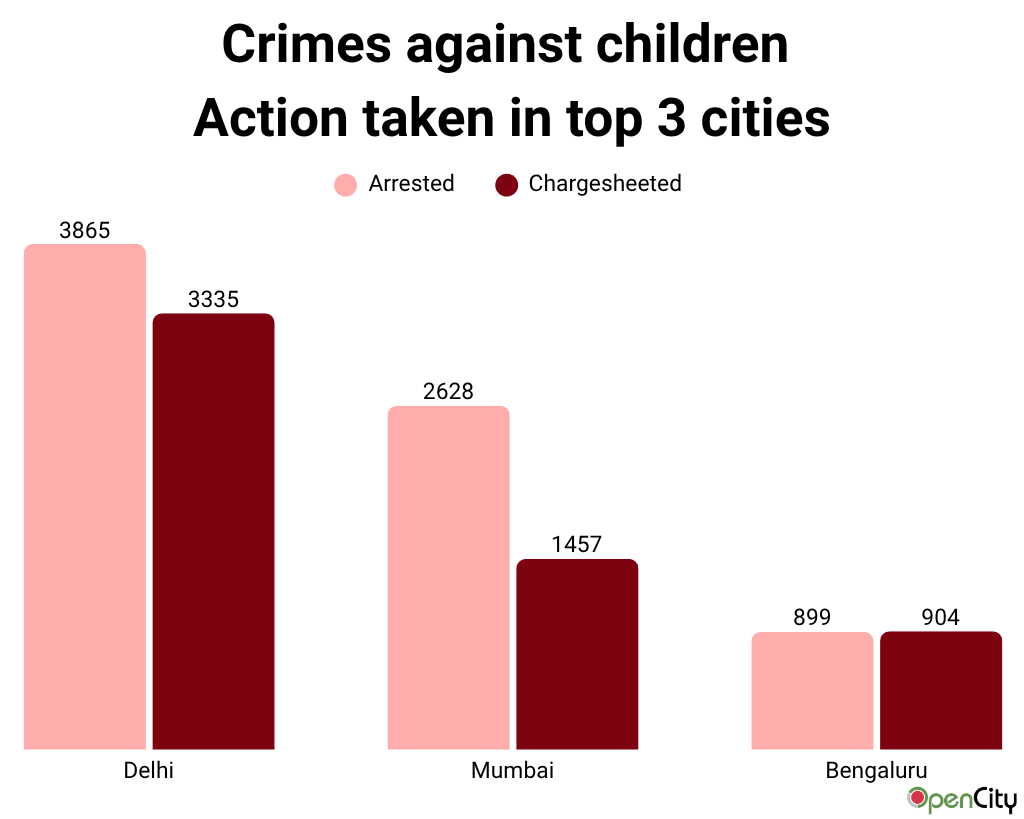
However, in trials completed in 2023 in Delhi, close to 40% of those charged with crimes against children were convicted, a much higher percentage than for crimes against women.
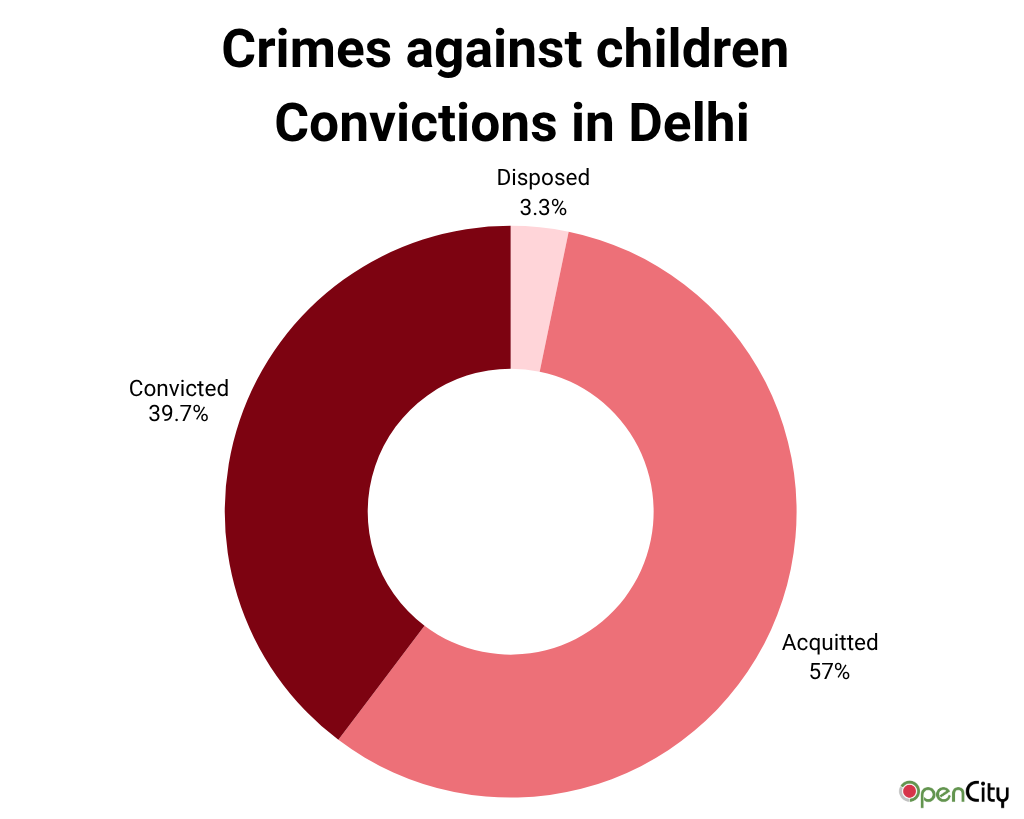
Economic offences
Economic offences include crimes like forgery, cheating and frauds that involve money. Mumbai, the financial capital of the country, leads with the highest number of economic offences registered, followed by Hyderabad and Delhi, who aren’t too far behind.
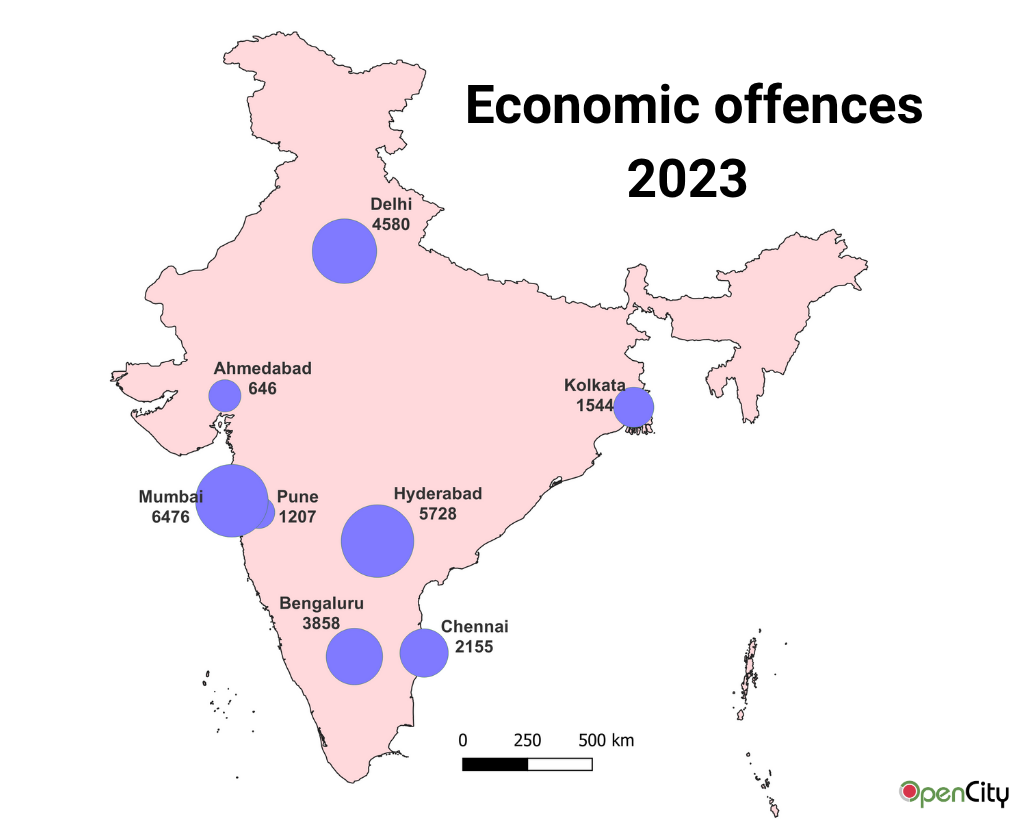
In terms of arrests and chargesheets, Mumbai and Delhi have a comparable number while there seems to have been very little action in Hyderabad on the cases.
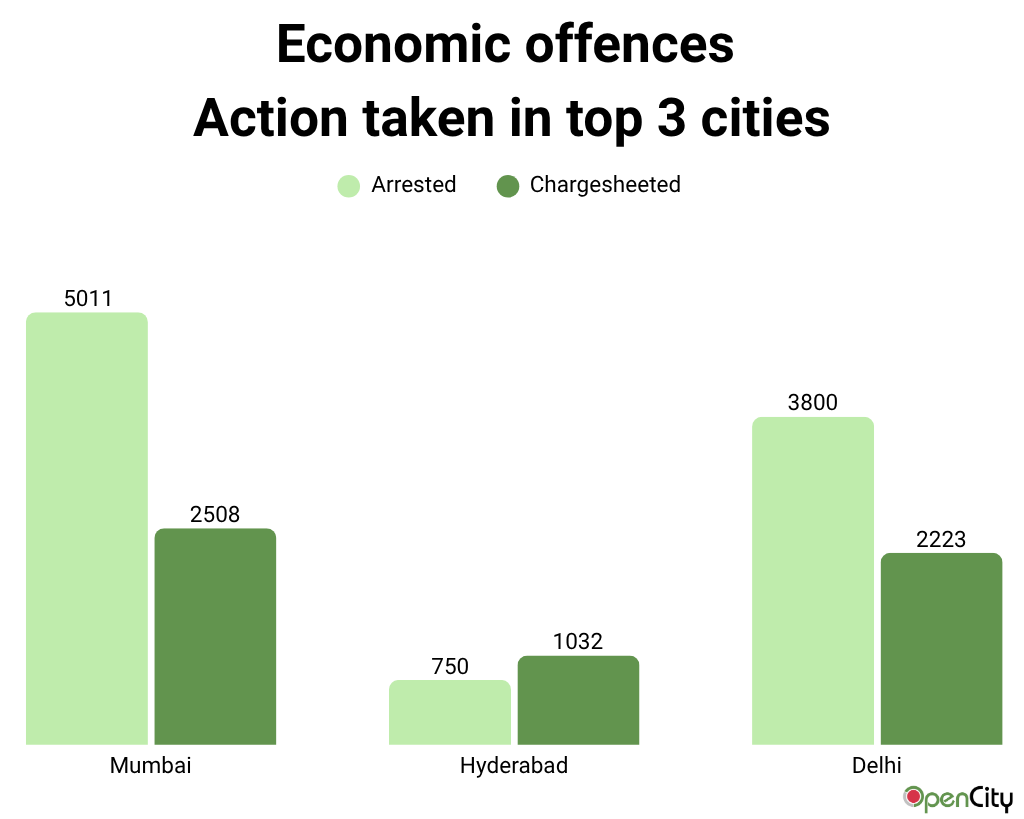
In Mumbai, the conviction rates were poor, at 15.3%. Concerningly, 31.6% of the cases were disposed before trial, with more than 50% of the accused being acquitted. The data suggests that compared to crimes against people, economic offences are harder to investigate and prosecute as financial transactions move increasingly to the digital realm.
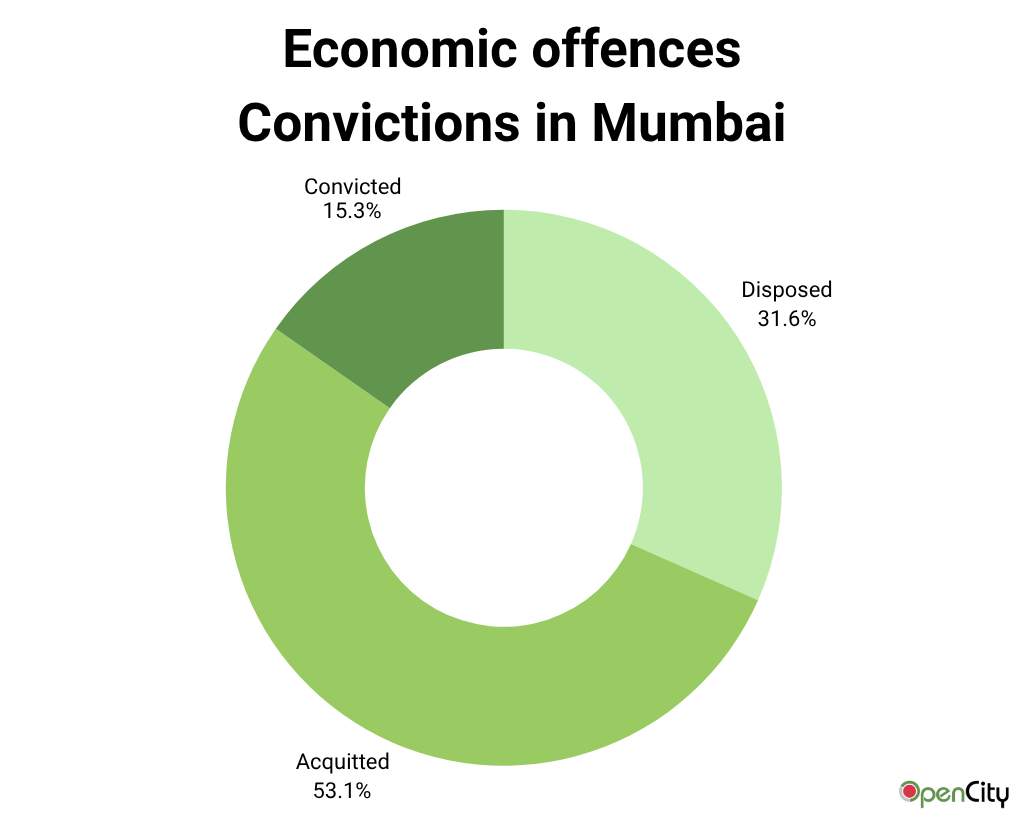
Cyber Crimes
Compared to other crimes, in cyber crimes there is a huge gulf between Bengaluru and the rest of the cities. Hyderabad and Mumbai together account for just around half of Bengaluru’s cases. One main reason for this variance could be the awareness among people about such crimes, and their coming forward to register them in some cities.
With more awareness and drives, more people in other cities are expected to come forward to register cases and the number should only grow for other cities in the near future.
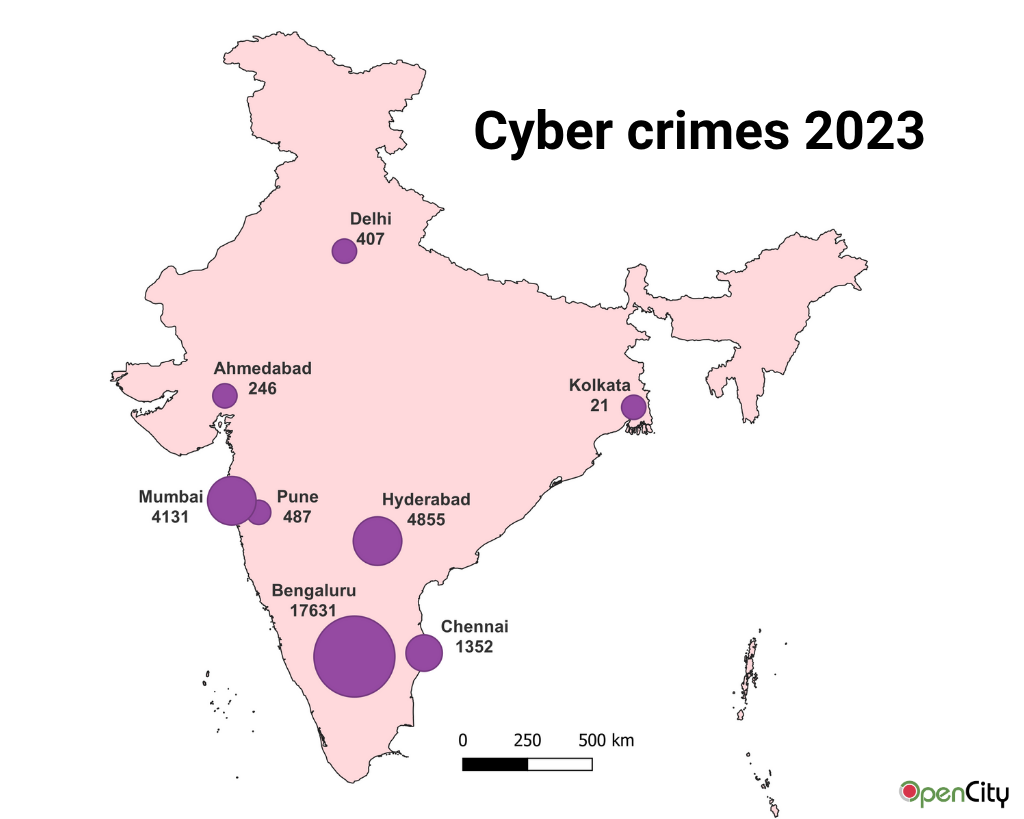
Given their nature, cyber crimes are challenging to investigate and nail accountability. The number of arrested and chargesheeted is thus only a fraction of the number of cases, especially in Bengaluru.
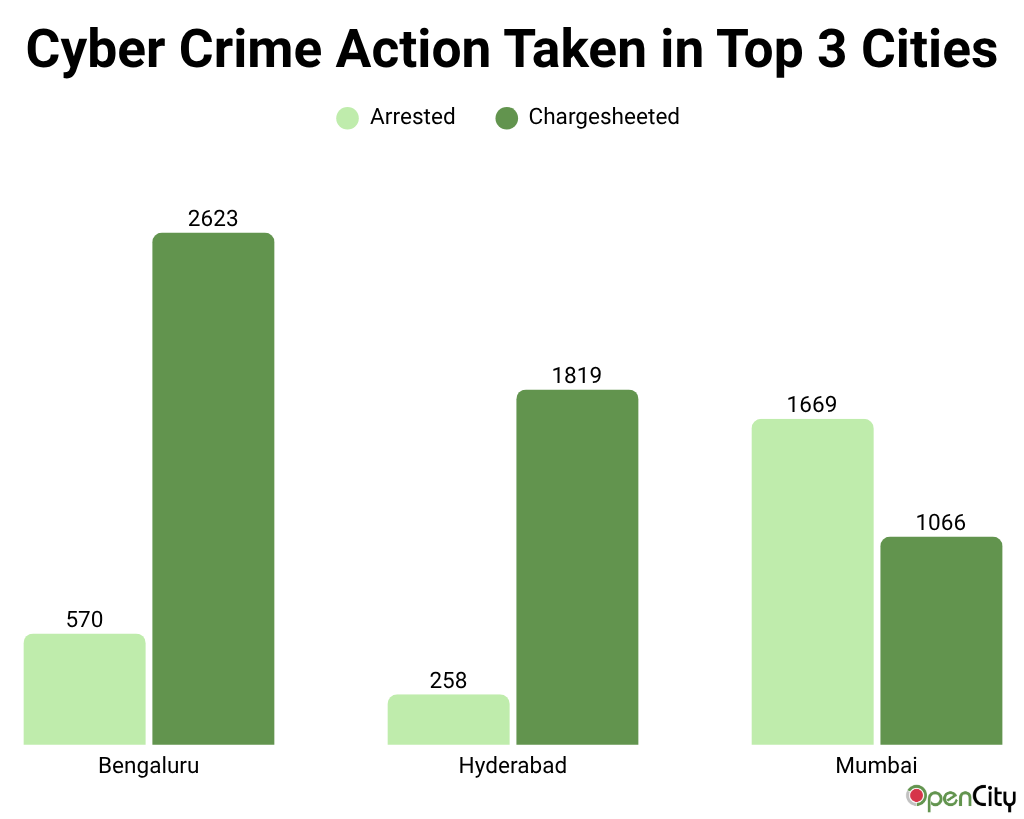
While more than 17000 cases registered in 2023, only 2000 cases moved to trial in Bengaluru. Almost all of these cases were disposed of before trial with the remaining resulting in acquittal.
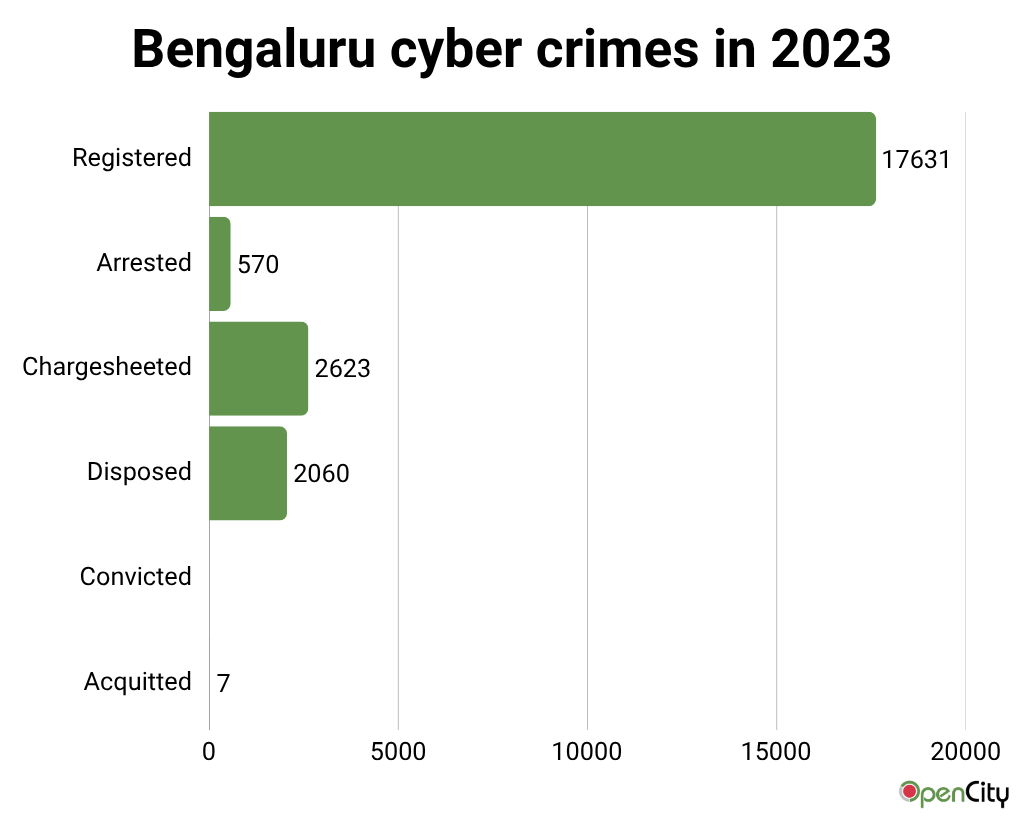
Cyber crimes are challenging to investigate. This is one of the few types of crimes with very low levels of conviction, with the technology staying many steps ahead of the law. Unlike other crimes, the criminals can and do operate from other countries making it difficult to bring them to justice.
It is important that laws and investigative methods evolve in step with the technology to be able to not only investigate and prosecute, but also to prevent such crimes.
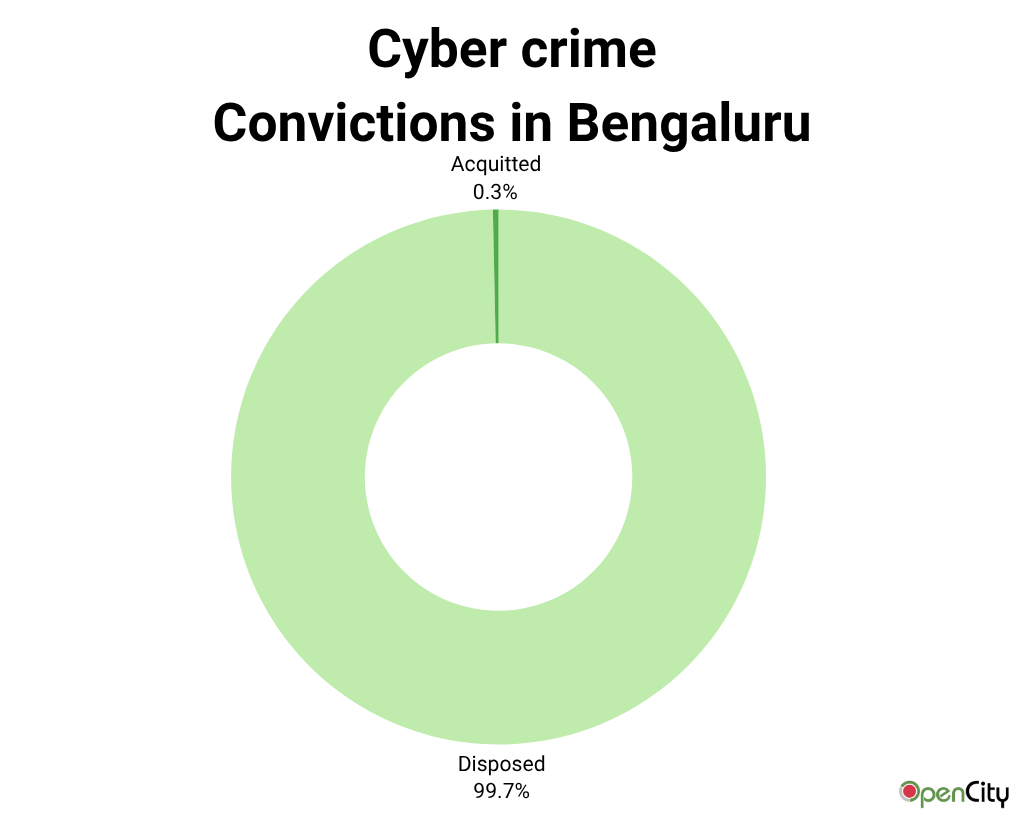
Conclusions
When it comes to crimes, there are specific cities where specific types of crimes are seen to be registered more. For instance, Delhi tops the charts for crimes against women and children, while Bengaluru leads in cyber crimes.
The reasons could vary from cultural issues and mindsets, to more awareness that empowers people to come forward to register the crimes in police stations, and also sensitisation of the police force itself to register the crimes.
However, the conviction rates vary widely for different crimes as well as between cities. For instance, while the conviction rate for crimes against women was 21.3% in Delhi, it was only 2.31% in Bengaluru and 3.09% in Hyderabad.
Similarly, for crimes against children, while Delhi had a conviction rate of 39.71%, it was only 12.24% in Hyderabad and 13.07% in Ahmedabad. As we saw in the first part of the analysis, there is a wide variation in convictions between cities as well as number of trials completed.
The challenges are also complicated by the nature of the crimes. Cyber crimes are difficult to investigate and prosecute by their very nature. The actors are increasingly seen to be operating as syndicates from different countries and using sophisticated technologies which the investigative agencies are struggling to catch up with. The advancements in Artificial Intelligence are only going to increase the vulnerabilities.

